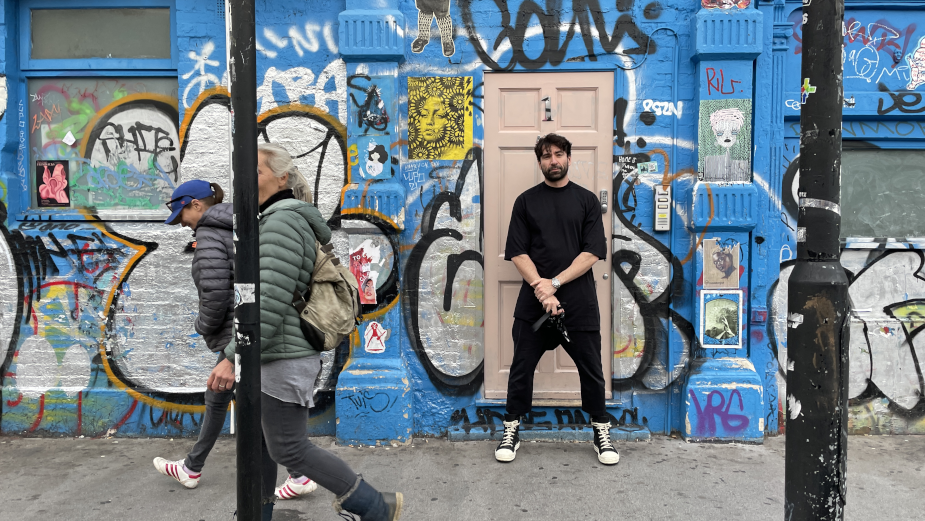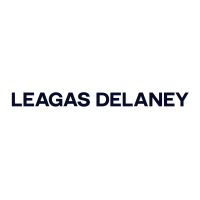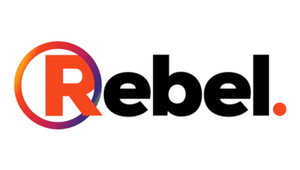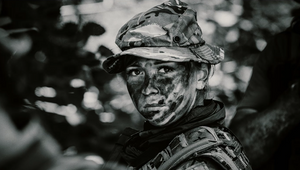
Meet Your Makers: Glenn Paton on Relentless Problem Solving

Glenn Paton is managing partner at Leagas Delaney. Originally from a journalism background, Glenn started out as a runner at advertising agency, Mother. He became a producer at BBH and then took up the position of head of film at Grey.
Glenn kicked off his directing career with the short film ‘H Positive’, which received acclaim and festival laurels at Cannes, Berlin and Raindance, amongst others. He was nominated for Cannes ‘Young Director of the Year’ and has directed music videos for Chase & Status, Katy B and Frank Turner, as well as commercial films for Patek Philippe, Ballentine's and Amazon.
In his role as managing partner, Glenn now oversees all production at Leagas Delaney.
LBB> What first attracted you to production - and has it been an industry you’ve always worked on or did you come to it from another area?
Glenn> I started out as a children’s BBC TV presenter [cringe] and studied multimedia journalism with a view to working in broadcast. But fate has a funny way of placing you where it wants you. I became a runner in an advertising agency and remember being surrounded by these interesting people who came up with ideas, or had just flown back from exotic shoots covered in mosquito bites. I remember thinking, no one is wearing a tie, this can’t be a job.
LBB> What was your first role in the production world, and how did this experience influence how you think about production and how you grew your career?
Glenn> My first job was as a runner for the ad agency, Mother. I was suddenly working with these incredibly smart, eloquent people and immediately wanted to be part of this world. I was only collecting their sandwiches or lugging kilos of coffee beans along Brick Lane at the time, but I felt part of something bigger than anything I’d experienced before.
LBB> How did you learn to be a producer?
Glenn> I started as a production assistant at Lowe London, where I was trained by Sarah Hallatt and Hannah Boase. Jane Rattle [thank you] was the one that gave me a chance.
My fondest memories of that time were learning about directors and the craft behind what they did. I spent all of my spare time watching hundreds of director’s reels, noting down what I liked about each director and why I liked certain films, shots or styles. This unknowingly gave me this incredible inner archive of their work, and I’ve still got this weirdly encyclopedic knowledge of commercials and who directed them. I would encourage any young producer to do the same. It pays it forward in an oddly serendipitous kind of way.
LBB> Looking back to the beginning of your career, can you tell us about a production you were involved in where you really had to dig deep and that really helped you to grow as a producer?
Glenn> Whilst at BBH, I received a script for a yoghurt brand. It mentioned rapping farmers and the tagline 'Yo Yo Valley. Big up your chest. Represent the West'. It wasn’t immediately clear how I was going to make it work but I remembered admiring a director called Director X (Julien Lutz) who had just started his career directing rap videos, but also had some comedy on his show reel. He flew over to the UK, directed it, and then we worked with his music producer in Toronto (Boi1-Da) to create this unlikely three-minute yoghurt commercial.
It aired across an entire ad break during the X Factor final and just, somehow, completely worked. I remember realising it was a success when a taxi driver asked me what I did for a living. I’d barely started telling him about the strange rapping farmer yoghurt advert I’d just produced when he started chanting “big up your chest represent the West”. After that, it went a bit mad. Amongst the totally random requests that followed, I had Zane Lowe email me to ask for an instrumental version of the track used on the ad. The film picked up awards and the director now directs for Drake. I don’t imagine he spends much of his time talking about his work with rapping farmers, but I look back on it fondly:
LBB> A good producer should be able to produce for any medium, from film to events to digital experience. Do you agree or disagree with this statement? Why/why not?
Glenn> A good producer should be able to make anything. There isn’t a ‘no’, but everything requires more time than people think. The best producers are relentless in their problem solving and it’s a great feeling to know you’ve found the solution.
LBB> What’s your favourite thing about production and why?
Glenn> Seeing the written words on a piece of paper in front of you and knowing that you’ll be instrumental in giving those words life in another form. It’s the weirdest feeling, and still something I’m not used to, but hearing or seeing a film you’ve produced pop up online or on TV as you’re making coffee still always raises my eyebrow.
LBB> How has production changed since you started your career?
Glenn> I think people have been told that they can do many roles these days, and that everyone should be broader in their talents. But, in my opinion, learning to do a role incredibly well and zero in on that is where the true skill really lives. People want to employ you for your expertise, not because you can do everything. It’s a lesson I learned when I started directing. It’s impossible to direct and produce something without exhausting yourself. Don’t be a master of none.
LBB> And what has stayed the same?
Glenn> Craft is still king. People still care about what they make and passion still reigns. If you’re going to make something, why not make it to the best of your ability?
LBB> What do you think is the key to being an effective producer - and is it something that’s innate or something that can be learned?
Glenn> Some things are innate and other things help. I think it’s important to apply massive attention to detail in your approach to producing, so it’s useful if being detail-oriented is naturally part of your life. I’m quite a particular type; I like things tidy, structured and sharp. If you walked into my apartment, you’d know I lived there.
I also think that truly caring about each project is the single most important thing I’ve learned. If you, the producer, isn’t applying care, who will?
LBB> Which production project from across your career are you most proud of and why?
Glenn> It was a commercial for Lynx/Axe hair, directed by Noam Murro. Every scene in that commercial was such a huge build/set up, it felt like we were making a movie. 360 degree car flips, exploding buildings, creating a real Japanese army… the job almost killed me but it was totally worth it.
From a more personal angle, directing a music video for Chase & Status is something I feel really honoured to have been a part of. It was a mad time in my life, and the idea that the runner who used to drag coffee beans into an advertising agency could direct a band that I have loved growing up makes me proud:
LBB> And in terms of recent work, which projects have you found to be particularly exciting or have presented particularly interesting production challenges?
Glenn> I currently oversee and produce all of the Patek Philippe work and it requires a lot of luxury fashion talent. It’s a different way of producing compared to UK domestic clients, and to work with a family-owned company brings the nature of care to another level. I’ve travelled the world with Patek, and for a brand to hold their original end line with such confidence is cool.
LBB> Producers always have the best stories. What’s the hairiest / most insane situation you’ve found yourself in and how did you work your way out of it?
Glenn> #NDA
LBB> What are your personal ambitions or aspirations as a producer?
Glenn> To be someone creative that the agency and clients can trust to make anything soup to nuts.
The future for producers is not set. We are constantly adapting and changing our ways of thinking. I want to be as lateral thinking as possible – that’s the secret to the future of my aspirations I think.
LBB> As a producer your brain must have a never-ending "to do" list. How do you switch off? What do you do to relax?
Glenn> Exercise. Leave it all in the gym. You should see the punch bag. Time and time again, it’s my saviour!
LBB> Producers are problem solvers. What personally fuels your curiosity and drive?
Glenn> Art Galleries, reading and watching all sorts of things. I like to try and work out how things are made.
People that make things for zero budget are also a great source of inspiration to me and I’m constantly watching music videos being made out of love and support for the unsigned artist. You need to be an exceptionally good producer or director to make things for nothing. It amazes me what can be done if you are passionate about something.
LBB> What advice would you give to people who are interested in becoming a producer?
Glenn> I think producing should come naturally if you’re that way inclined. If your natural talents lie in being vigorous and buttoned down in your personal life, that will always put you in good stead in your professional career. And being an inherent people pleaser always helps.
LBB> From your experience what are the ingredients for a successful production?
Glenn> Passion, talent and time.
LBB> What’s the key to a successful production-client relationship?
Glenn> Bring the client on the journey with you. Make them feel part of the process and not left in the shadows. A good client wants to help. Creating an open working environment where you can call one another with any odd question makes for the best process. Making anything is a collaborative form of alchemy, and everyone should feel emotionally connected to it.










